Caring For Aging Loved Ones in Yucatan
The following is a story that was sent to us by a gentleman, Mario Arredondo, who has gone through a process we may all someday have to endure: searching for and finding a nursing home for a loved one. While this process is probably never devoid of pain and sorrow, in Mario's case, the difficult situation was compounded by the virtual loss of his best friend and wife, Inger, to dementia.
Nursing homes, according to our Yucatecan friends, are a new development here in Merida. In earlier times, families cared for their abuelitos (grandparents) at home. In the last twenty or thirty years, retirement homes of all types and sizes have been springing up in the city as people are living in smaller family units and getting
>
too busy to stay home with their elders who need full time care. Retirement homes are called everything from Asilo de Ancianos (Old Age Asylums) to Casas de Descanso (Rest homes), Casas para Los Abuelitos (Grandparent Homes), Casas de la Tercer Edad (House of the Third Age) and Casas para Adultos Mayores (House for Older Adults).
According to our email correspondence with Mario, Inger was the love of his life, who he met in Paris some fifty years ago. She spoke English, Spanish, German and French fluently, and of course, Danish which was her first language. In their younger days, they had both been successful business executives, first in Denmark and then in Cuba, where Mario was the CEO of a regional office of a major Danish corporation. In Cuba, Inger served in the Danish consular office, and eventually she became the Norwegian consul to Cuba. They retired to Merida in 1998, looking forward to spending time together in their lovely home here, enjoying the tropical climate and their free time. In 2008, they both turned 72 years old.
We invite you to read Mario's story. Whether you are 32 or 52 or 72 years old, chances are you will be touched in some way by the aging of either yourself or a loved one. Dealing with the aging process in Mexico will pose different challenges than it might in your homeland, but it may also present unexpected opportunities. For instance, there are probably no elder care facilities in Merida today with English-speaking staff. On the other hand, good to excellent care can be obtained for a fraction of the price of a similar service in the States. We suspect, in the end, this is an industry in the Yucatan, like real estate and tourism, that will experience serious and wide-ranging effects from the presence and participation of expatriates.
At the end of the story, we will tell you about some local expats who are taking the situation into their own hands, and inviting you to participate. But first, here is the story of Mario and Inger, in Mario's own words:
My wife Inger and I are Danes who have chosen to retire to Merida, capital of the state of Yucatan. Sometime after moving here, in early 2003, Inger started to show disturbing changes in her personality. A good memory had never been among Inger’s many intellectual resources, but her poor memory went quickly from bad to worse, and her short-term recollection of events of the day or hours before started to disappear. My wife ascribed it to the trauma of having lived through Hurricane Isidore, with the devastation it brought to our city and the extensive damage to our home in September 2002. She thought her symptoms would gradually disappear. But I was so disturbed by her gradual deterioration that I began to ask other friends about their experiences.
My neighbors, the Perez family, were kind enough to share their own similar experience with me. The matriarch of their family had displayed similar symptoms to Inger’s and had been diagnosed with a cerebrovascular disorder, a type of dementia that mimicked Alzheimer’s disease. The woman’s brain was dying and the doctor feared a vegetative life for her. Learning about the Perez family’s tragic experience was of invaluable help to me in getting an early diagnosis and timely treatment for my dear wife. The son gave me the name of the neurologist who had diagnosed his mother and recommended that I seek his immediate advice, which I did as soon as I could get an appointment.
Following a series of brain scans, the neurologist diagnosed my wife as suffering from the same condition as that of Mrs. Perez. I was devastated. It was a cataclysmic blow to our expectations of enjoying our “golden years” of retirement. We had anticipated blissfully pursuing recreational activities together as actively as we had enjoyed our professional lives.
During a private conversation, the neurologist comforted me with the fact that my wife’s condition was in its early stages.
In the scan, he saw a few bright spots, indicating brain strokes, against the background of an otherwise normal brain. He told me that the advance of the condition could be considerably arrested by pharmacological means. When asked about the long-term prognosis, the neurologist informed me that, as opposed to Alzheimer’s disease, where patients could live for up to twenty or more years after the onset of the condition, patients with the cerebrovascular condition he had diagnosed in my wife had a life expectancy of only five to ten years from the onset of the disease. A massive brain stroke would be the likely cause of death.
I left the clinic in a haze of conflicting emotions and carrying an arsenal of medications. The key prescription was a blood thinning preparation that would arrest the frequency and severity of the brain strokes, a medication that Inger needed to take for the rest of her life.
The bad news presented me with a painful dilemma. For the first time in our marriage, I had to hide from my wife hard facts of life that were affecting us both. We had faced all of life’s prior upheavals together, with shared background knowledge and a determination to find mutually satisfactory solutions. For the first time in our lives together, we could not do this any more. This would be the first big secret I had to keep from my wife since we had met in Paris fifty years earlier.
I lied to Inger, telling her that her situation was not so bad and that she had many years left of a fulfilling and happy life. The most I could disclose to her was that she might have to adapt to certain limitations because of failings of her memory and abilities, but she could be sure that I would always be at her side to compensate for her possible minor shortcomings.
Compounding the situation that I was now facing alone was the fact that a recent routine medical examination had disclosed that I had serious reasons for concern regarding my own health. During my yearly cardiology check-up, the doctor had heard an abnormal sound mixed in with the usual heartbeats. An echocardiogram disclosed a faulty aortic valve, which was causing my heart to pump frantically to maintain a steady blood flow. As in the case of Inger, the condition was in an early stage, and did not require immediate surgery. I was warned, however, that it could easily advance to a stage that would require aortic valve replacement surgery to avert death. I was given a prescription for a hypertension drug and a recommendation that I adopt a healthier life style. No smoking, no drinking, no worrying.
Inger and I were facing the worst possible health scenario. Both of us were afflicted by serious health conditions, far away from the safety net of Denmark’s socialized medicine. More importantly, we were far from a social environment of relatives and close friends who could take care of us in an emergency. After reviewing the gloomy alternatives, I decided the most important thing was spending whatever time Inger and I had left living life intensely. We would travel together to exciting places and thoroughly enjoy all the things we had valued in our lives.
Four years have elapsed since the initial diagnoses of our respective ailments. My condition has remained stable. Not so Inger’s. Three successive brain scans disclosed that further brain strokes were occurring, accompanied by further deterioration of her cognitive faculties, speech, and general ability to perform the most elementary chores.
As long as Inger kept her eminently rational mind, optimistically reasoning that she had forgotten this or that, I willingly settled into a routine of running every aspect of our household, and helping Inger even with her own personal grooming. When that advanced to also having to take care of her personal hygiene, the pressure on me became unbearable. I found it difficult to tolerate the embarrassment of intruding into her intimacy.
The worst was to come around October 2007, when Inger started losing her ability to think rationally. She was falling in and out of lucidity, her usual placid mood marred by compulsive behaviour such as collecting her clothes to protect them against imaginary intruders. When her night sleep became extremely agitated and noisy, I had no choice but to settle into one of our guest rooms. Soon I discovered that that wasn't a solution, as she couldn’t be left alone.
On one occasion, at midnight I heard a rumbling noise coming from our kitchen. I hurried to check and found Inger trying to brew a cup of tea. She had opened all the gas taps. They must have been open for quite a while, since the kitchen and a good deal of the house smelled strongly of LP-gas. I hurried to close the taps and open all the doors and windows. By sheer luck, Inger had not tried to ignite the burners. I changed the lock on Inger’s bedroom so that it could be locked from outside and made a routine of regularly closing the main gas supply valve.
At the end February 2008, we received a long-expected visit from a couple of European friends. I was very concerned about the way Inger would handle that visit. Luckily, she was in a lucid period and acted as a most gracious hostess, except for a few incoherencies, which may or may not have passed unnoticed by our guests.
Later in March, and then in April, both our daughter Lisbeth and my sister Virginia visited us.During their visits, Inger was at her worst, and Lisbeth and Virginia were deeply shocked at what they saw and experienced. They were the first to raise the possibility of my placing Inger in a nursing facility, as they knew of my health condition and they could see the stress the situation was placing upon me.
After their visits, I went to my doctor for my periodic heart check-up. My electrocardiogram showed some irregularities and the cardiologist questioned me about my lifestyle. As the good friend he had become over the years, he was horrified to hear that I was caring for a senile spouse. He too endorsed the idea of a nursing facility. He reminded me that I was Inger’s caretaker and guarantor of her upkeep. As such, I had the duty to preserve my life, both for my sake and hers.
Still unwilling to give up, I took Inger to a psychiatrist in the hope that therapy and medication could sedate her to a manageable state. The psychiatrist prescribed anti-psychotic and anti-depressive agents, which he hoped would regulate her worst delusions and mood swings. But he could not guarantee that even under sedation Inger would not again act erratically, endangering herself and her surroundings. In the doctor’s professional opinion, placing her under the constant supervision and the protective surroundings of a nursing home was the correct solution.
Finally, I started looking around for a nursing home for Inger. Some of the recommended homes were run by Catholic nuns. They only accepted physically disabled elderly women, preferably of Catholic background and observance. Inger was disqualified on both counts. I resorted to the telephone directory and found several nursing homes, mostly located in downtown Mérida. I checked them all and was horrified by what I saw: run-down premises overcrowded with patients who looked unkempt and uncontrolled. Their insanity was unchecked and overwhelming. They places looked and smelled more like storage rooms of human refuse than nursing clinics.
>
My next stop was a fairly large, colonial-style house that I used to pass by on my way from shopping at Costco. It was in the Campestre neighbourhood, right across Paseo de Montejo from our own home. They had a large sign advertising their care of elderly people. It turned out that they were experienced in caring for dementia patients. Their premises were clean and pleasant, although a bit overcrowded, and the staff was very kind and apparently highly qualified. Their rates did not include medicines and other ancillary supplies, such as diapers, which were to be supplied as needed by patients’ relatives.
They had no vacancies at that facility, but had just opened another home at Montes de Amé, a neighborhood in North Merida, where they were accepting patients. I immediately made an appointment to check the facility. I knew the home was similar to the first one, a nice villa with a large garden and a pool, in a very quiet neighborhood. They had several vacancies, including a spacious room they could book for Inger upon my signing a contract and making a down payment. I immediately made arrangements to have Inger start as an outpatient at the beginning of May. Under this arrangement, I would deliver Inger in the morning and pick her up in late afternoon. The idea was to get Inger adapted to her completely new circumstances. After two weeks under this arrangement, I decided it was time for her to become a resident.
Two nurses staffed the home, taking care of only three patients, including Inger. They were caring and competent. My only misgiving was the complete lack of activities for the patients. They were fed, groomed and on the whole pampered, but there was nothing for them to do, except to walk from their rooms to the dining room or the sitting room, where they spend most of the day watching Mexican TV programs. I found out that Inger chose to spend her time confined in her room, scanning Danish ladies’ magazines, which she could no longer properly read. When she left her room, she spent hours in the corridor staring blankly at a poorly kept garden. The patients couldn’t go in the outside area because the personnel feared they would fall into the empty, unprotected swimming pool.
At the beginning of Inger’s second month there, three more patients joined the existing residents, but there was no change in the staffing level. Naturally, all the patients received less attention than previously. I was growing uncomfortable with the arrangement and when the management decided to significantly raise the rates, I decided it was time to move Inger.
Fortunately, there was another establishment nearby advertising nursing services. I paid them a visit and was impressed by the dedication and professionalism of their staff. The facility was associated with a non-profit organization, called a Patronato. They had no single individual rooms, as their policy was that rooms ought to be shared, for the mutual support and friendship opportunities it offered the women. I had my misgivings, but I decided to let Inger give it a try.
I made arrangements for Inger to move into the Patronato establishment at the beginning of August. She has now been there for nearly two months, and everything seems to be working to everyone’s satisfaction. The new home offers a number of activities supervised by the nurses who are on staff, including physical exercise, physiotherapy, and most important to Inger, swimming, which she loves and at which she is rather proficient. Inger seems so far to be quite satisfied with her new circumstances. Visitors are allowed between 11 AM and 6 PM, and of course, I visit her often. And I am, of course, always closely monitoring her circumstances to make sure the present home is the right place for her to spend her coming years in Mérida.
Reflecting upon our ordeal, I reflect on how lucky we were, through timely treatment of my wife, to get a four-year respite from an unavoidable outcome. Those years gave us a temporary lease on the lives we had dreamed would last until old age. We do not look upon our fate with bitterness. Instead, we are grateful for the four years of happiness we gained as a result of early diagnosis. We look at these precious years as a reward for the devoted concern over one another’s well being, arising from the ineffable miracle of love.
If a lesson is to be drawn from our example, it is for elderly spouses and other relatives of elderly people to be alert to personality changes in their loved ones that may warn of treatable conditions.
I have omitted the names of the various people and establishments referred to in my story, to avoid unwanted endorsements, or criticism that may be deemed to be unfair. In my experience, residence rates of local nursing homes range from $4,000 to $12,000 pesos a month, and are not necessarily related to the quality of the accommodation and of the services. In Inger's present and previous homes, there was always someone who spoke a little English and could understand most of Inger's mixture of Danish/Spanish/English. As far as I am concerned, I always conduct business with them in Spanish, which is my native language. I have never met other expatriates in any of the homes that I visited or in which Ingrid lived.
Contact Mario
Interested parties are invited to contact Mario Arredondo for further details about doctors, nursing facilities or other related issues at his email address: ibamar@prodigy.net.mx.
Community Organizing
It has not gone unnoticed to our Merida expat community that there are not a lot of good choices in Merida for retirement facilities, and what is here caters, naturally, to the Yucatecan or Mexican population. There may be less than 10,000 expats in the Yucatan area at the moment, but those numbers are predicted to rise precipitously over the next few years. And while people of all ages are moving here, it is the Baby Boomers who make up the majority. We are all getting older, and those of us who want to continue to live in this lovely warm climate and culture will at some point need and want the services of various types of retirement communities and services.
Not content to leave decisions to someone else about what kind of communities will be available, a group of local expats has begun to survey the Merida expat population about their needs and wants. If you would like to be a part of this survey, please contact Martha Lindley at martha.lindley@gmail.com or Lorna Gail Dallin at lg5050@hotmail.com. After sufficient questionnaires have been gathered, the group will hold meetings for further discussion. If this is a subject that interests you in any way, whether it is for yourself, a loved one or for investment purposes, we encourage you to contact them. And as always, we encourage your comments.
Preventative Measures
The Medi-Alert System is now available in Merida through StarNet Computer Service, located in the City Center Mall next to the Super WalMart. This is the service that puts a communication device in your home which allows you to notify a central service if you need help. For more information, you can contact Jose Antonio (also known as Pepe), who speaks English, by phone at 999-913-8539. (His wife, Maria, who lived in the United States for 20 years, runs a jewelry shop next door). Tell him Yucatan Living sent you!




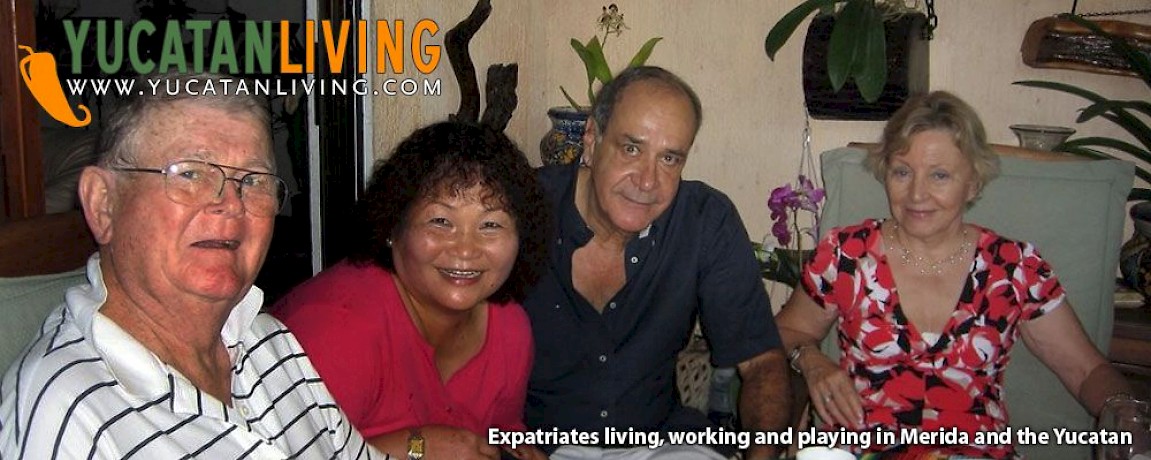


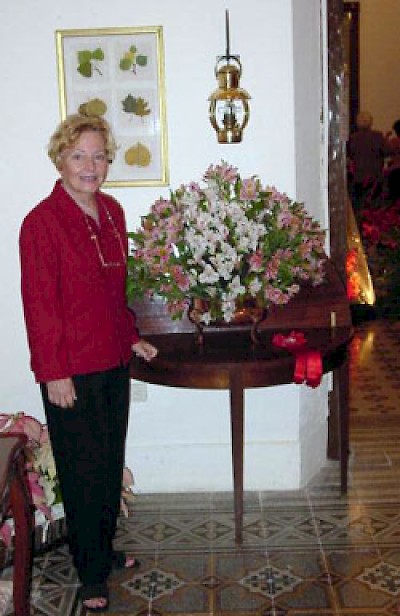
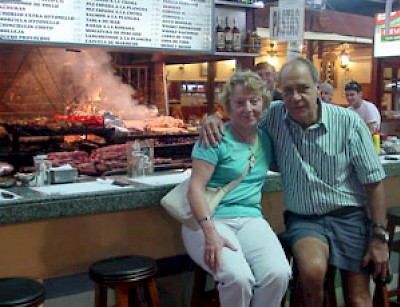
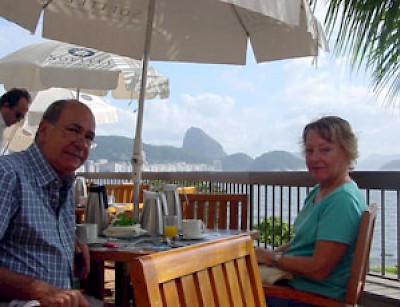
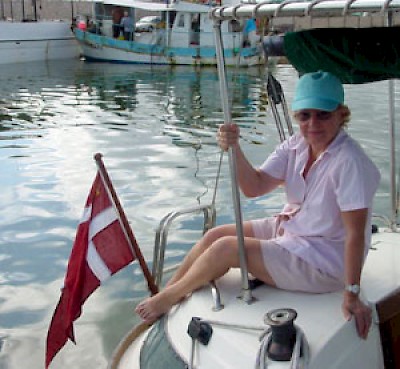
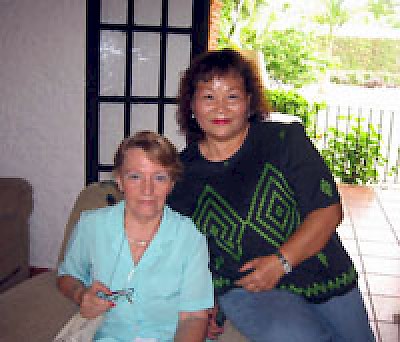
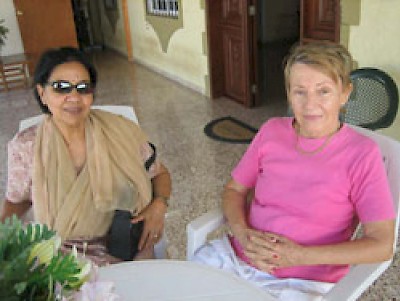
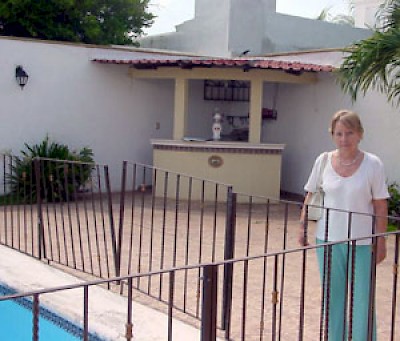

Comments
emg 17 years ago
Thank you Mario! I used to swim with Inger at the Hyatt many years ago. I also once lived in Denmark, so it was a chance to practice my almost forgotten Danish. I really enjoyed knowing her and missed her when she stopped swimming at the Hyatt. Then Monika brought her to the IWC and we had a chance to chat again.
I am concerned about my own future in Merida as I am divorced, diabled and live alone. I know the time will come when I will have to make a change in my living arrangements somewhere down the road. I hope soon that some assisted living facilities are available in Merida. I am interested in any group forming to talk about this subject as we all are aging in our beloved Merida.
Reply
Malcolm 17 years ago
What a jaw-droppingly, incredible story, Mario. I am continually amazed by the spirit and outright bravery present in my fellow man; the decisions that you were forced to make, in a foreign country, are extremely difficult, and I can't commend you enough.
My only question after reading your story (and please forgive me if this is too personal a question) was the misgivings you may have experienced about placing Inger in a facility that was almost entirely Spanish-speaking. Do you have concerns about how the staff there, strangers to her, speaking entirely Spanish, are affecting her overall levels of confusion about her current situation? How on Earth do you handle this? How is the whole situation presented to her? Do you worry about that?
Again, I stand in deep, deep admiration of your strength, your decisions, and the choices you have been forced to make for the woman that you very clearly love so dearly. I wish you nothing but the best, as you continue this journey.
Reply
mcm 17 years ago
Mario -- and others, perhaps -- will be happy to hear that there are indeed medical doctors certified in geriatrics in Yucatan. I can recommend Dr. Francisco Silva Campechano, certified in Geriatrics and internal Medicine from UNAM, who currently has a practice at Star Medica. Dr. Silva, who speaks only Spanish, offered compassionate, wholistic care to my mother during her last illness. He also just finished coordinating a short course in geriatrics at a local University, for other medical professionals.
His office telephone is 196-14-39. Again, Dr. Silva does not speak English, but understands and can communicate with those who do not speak fluent Spanish.
Reply
Working Gringos 17 years ago
An addendum from Mario...
My long-term aim by publishing that article is that we, expatriates in Yucatán from the so-called "first world", could pooling ressources together, rent a roomy residence, hire two or three nurses, a janitor, a general practitioner as "consultant" (there is no such a medical speciality as "gerontologist" in Yucatán) and then run the place on the basis of expense sharing. I believe that in case of 8 to 10 patients, paying each as little as 10 to 12.000 pesos monthly we could offer our loved ones "first world-style" care and comforts, with the additional touch of human warmth Mexicans can provide. Naturally, as things go in Mexico, somewhere along the line a legal consultant would have to be called in..
Please do not hesite to contact me if you have further questions or ideas.
Reply
Shirley & Jose A Herrera 17 years ago
I and my husband are now a "tercera edad" members looking forward to the Yucatan where, for several years, we have been planning to move as soon as our children are on their own which it should be early in 2009. Mr Mario Arredondo's narrative is quite an "eye opener". Here in southern California, related to my profession, I frequently visit a variety of "Retirement Communities and Nursing Homes" There are thousands, perhaps hundreds of thousands, of elderly folks being "warehoused" in extremely "love-less" conditions paying from about three thousand to over seven thousand dollars per month. Every one is hoping this new president will do "something for the forgotten old folks" who, in the majority can not afford their "golden years" as they hoped. Yucatan should be in the eye sight of Mexico's newly created AMAR (Associacion Mexicana para la asistencia en el retiro).
Reply
Peregrina 17 years ago
Great article, thanks for sharing your story Mario may God keep you and Ingrid safe.
Reply
« Back (30 to 36 comments)